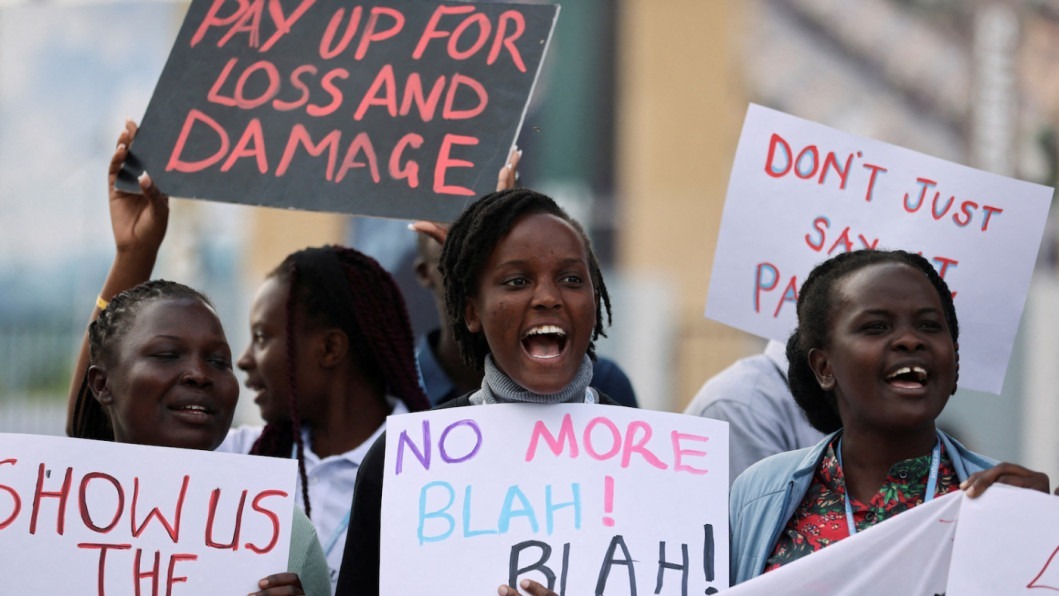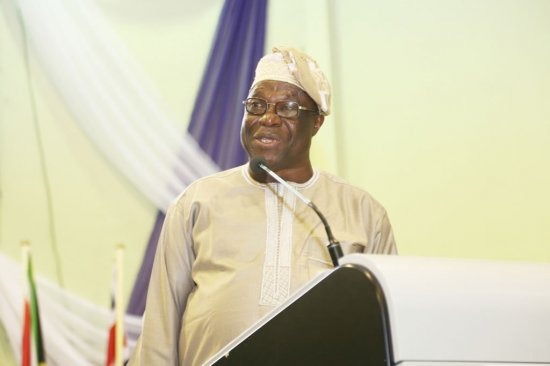Photo credit: Reuters.
by Duncan MacFadyen
COP27 in Sharm El-Sheik has been an excellent opportunity for Africa, and the world to ensure real change with regards to global warming. There is a massive opportunity for Africa to get it right, as in many cases, the major infrastructure for Africa is yet to be built; therefore identifying developmental pathways which are nature (and climate) supporting rather than nature (and climate) eroding is of great importance.
- We have a unique and bold opportunity to build modern vehicles to create green and climate resilient ecosystems and collectively bridge the gap towards net zero.
- Agricultural systems will have to change to adapt to climate change and improve food security.
These were some of the major messages that emerged from delegates at the 2022 United Nations Climate Change Conference, commonly referred to as COP27, recently held at Sharm El-Sheikh in Egypt.
Climate Change is an ever-increasing threat to human and environmental well-being and any further delay will impact a liveable future for all Africans, as well as the global population.
Time is of the essence, if not too late already.
Past COP’s have had a varying degree of impact, with COP27 seemly aware of the fact that real change and impact was required. I should mention the fact that a group of youth had a stand, with slogans, “no more blah blah”, highlighting the fact that action speaks more than words.
It is important to understand the simultaneous equation between man and the environment and understand the self-healing rates in different urban and rural environments, or in other words, resilience. We need to understand any gap between social, environmental, and economic environments, and understand the links between the triple bottom-line.
Countries like South Africa clearly have a coal addiction, with limited diversification at this stage, albeit some promising talks in certain regions. Alternatives need to create jobs, avoiding an employment vacuum, and maintaining livelihoods in areas dependent on mining. Minister Barbara Creecy, who was on a panel at COP27, mentioned the fact that while politicking in the Emalahleni district, she literally went from house to house, and literally every household had mining or Eskom overalls hanging on the lines.
This is telling…alternatives need to create employment.
Coal and energy value chains have played a role in economic transformation. No doubt, there have been many lost opportunities, and overtime, fewer and fewer will present themselves, as the amount of climate mitigation wriggle room becomes less and less for Africa, as it is globally. Key should be to limit collateral damage, and for Africa to become resilient to climate risks, while growing its economy.
There is a need to ensure the distribution of risk and responsibilities, and ownership needs to be taken by everyone. It is important that there are structural changes to the economy and to ensure economic diversification.
We need to focus on cleaner, more effective solutions, and take our climate responsibilities seriously. We should be producing enough to ensure excess energy, cleaner air and improve our global competitiveness. This will all ensure a better, healthier environment, but Africa needs to “speed” towards a low carbon economy.
Currently, 86% of South Africa’s electricity comes from coal fired power stations, with a carbon intensity greater than China. We need to transition into other sources, such as renewable, greener hydrogen. Decarbonisation is vitally important if South Africa is to hit its target of a zero-carbon economy by 2050.
Rising temperatures, increased sea-levels, droughts, increased fires, heavy rains i.e., Durban floods, as well as massive heat waves have more than doubled in recent times. This is not just a physical climate issue, but also a socio-economic and political concern too. We are already having unnatural two week-long heats waves over 42 degrees Celsius in areas where these kinds of temperatures are unheard of. There have been more cyclones in Mozambique since 2020, than in the previous decade.
In some parts of the Africa, 60% of the country’s jobs are in agriculture; with people living in river deltas and flood plains, areas where informal housing and livelihoods are most impacted. It’s about adaptation, and not just mitigation. We need to adapt and identify co-benefits like never before.
Then there is the issue of the blanket planting of trees in areas where trees don’t naturally occur, such as grasslands. Many organisations are trying to do good, but this often results in a series of negative impacts. This may result in land-use change, competing water uses and reduced water availability, often in areas where water scarcity is already an issue. Then there are increased fires, and intensity, as well as irreversible impacts on soils and reduced soil organic carbon, food security, and local biodiversity loss, all of which have huge risks in fragile socio-environmental and economic environments.
The real, big impacts are still to come, as we are currently experiencing a 1.1 degrees Celsius increase, from a lower-acceptable limit of 1.5 degrees Celsius increase, and a 2 degrees Celsius upper limit as per the Paris agreement. There are huge risks already with hitting a 2 degrees Celsius increase, with massive increase in biodiversity loss with 18% of species at risk. This coupled with the impacts on agriculture, will have devastating impacts on natural and urban environments. Increases in temperatures needs to be limited to 1.5 degrees Celsius, and we are not far off.
Currently, only 3.8% of global climate research funds are focused on Africa. There is a huge imbalance here, especially since only around 4% of the global emissions come from Africa, and the fact that Africa will in many cases bear the brunt of global warming and the impacts of climate change.
We need to focus our future on adaptation, reducing climate risks, reducing green house gas emissions, enhancing biodiversity, and ensuring the health of protected areas, while providing proper focus on achieving sustainable development goals.
It is no longer about ensuring profit at all costs and giving back needs to be at the heart of what we do. The importance of identifying where and who can make an immediate contribution is vital.
Increased focus on a circular economy, ensuring what we make, we use and recycle, rather than a linear in which we take, make, and dispose of. It is important that we build resilience through diversity and there is a serious need, like never before to shift to renewables, and not only focus on carbon, and build an economy that isn’t reliant on resources alone.
We must think long term – innovate, nurture, and encourage entrepreneurs. We need to be clear on what the public, as individuals can do to fight climate change. We need to investigate green bonds, green loans, green infrastructure, and improve recycling efforts. We need more appropriate solutions, not forgetting that diversity matters.
Food, mobility and housing are said to create 70 to 80% of global environmental impacts, and focus needs to shift to take the long-term socio-sustainable environmental impacts into consideration. It is reported that 77% of South Africa’s greenhouse gas emissions come from energy. The focus needs to be on creating circular business models which considers the role of entrepreneurs and motivation for circular entrepreneurs.
We need to understand the barriers and ensure a positive force for change in the climate space. Technology has grown in leaps and bounds, block-chain and artificial intelligence technology must contribute to ensuring viable business model designs.
We need to give thought to design, waste, platform and nature based solutions. Nature based solutions show great promise and opportunities for local people. Major barriers remain in financial and economic viability, developing and understanding supply chains, and markets, as well as organisational structures. Margins are often thin, and initial expenses often exceed income initially. These enterprises themselves need to have a strong motivation for the development of circular economies.
The importance of telling a compelling and factual story remains vital, based by solid, reliable data, which will assist in breaking through the bottle neck which often impact nature-based opportunities. It is scary to note the numbers of weather stations across Africa, but particularly Southern Africa which have closed down. This has definitely resulted in less reliable data been reported, as well as less coverage across the continent.
It is important that policy and financial assistance from governments remains a priority and that research is targeted to fill any missing gaps.
Land-use is important and there are opportunities within urban agriculture and nature-based engineering solutions.
Governments in Africa have a massive role to play in blending capital, development of policy around green infrastructure and reducing reliance on resources.
It is important that governments contribute to reducing the global carbon markets and make for a greener Africa, while creating many more jobs. We need to create the structures to bring public and private sector together to create honest, trusted partnerships, which ensure an increased speed of delivery and impact.
The importance of local knowledge should always be included to ensure strong African voices. As mentioned, time is of the essence, and delivery timeframes need to be shortened to no longer than 3 to 4 years. Projects supported financially need to have a return, and not a one fit for all purposes.
COP conversations are an important step in the right direction, but more is required from the global north. This is not charity, it’s not baling out “poor” Africa, but paying for real damages done.
Oppenheimer Generations Research and Conservation has funded and assisted in the development of in-depth technical reports highlighting an African climate-position on land and oceans.
More African billionaires need to come to the table, adding their voices to the cause, and partnering with like-minded individuals across the continent.
— — — — — — —

Dr Duncan MacFadyen is the Head of Oppenheimer Generations Research and Conservation, a Charity that supports, funds, and partners with national and international researchers to conduct cutting edge research focused on the natural sciences.








Your article helped me a lot, is there any more related content? Thanks!
Thanks for sharing. I read many of your blog posts, cool, your blog is very good.